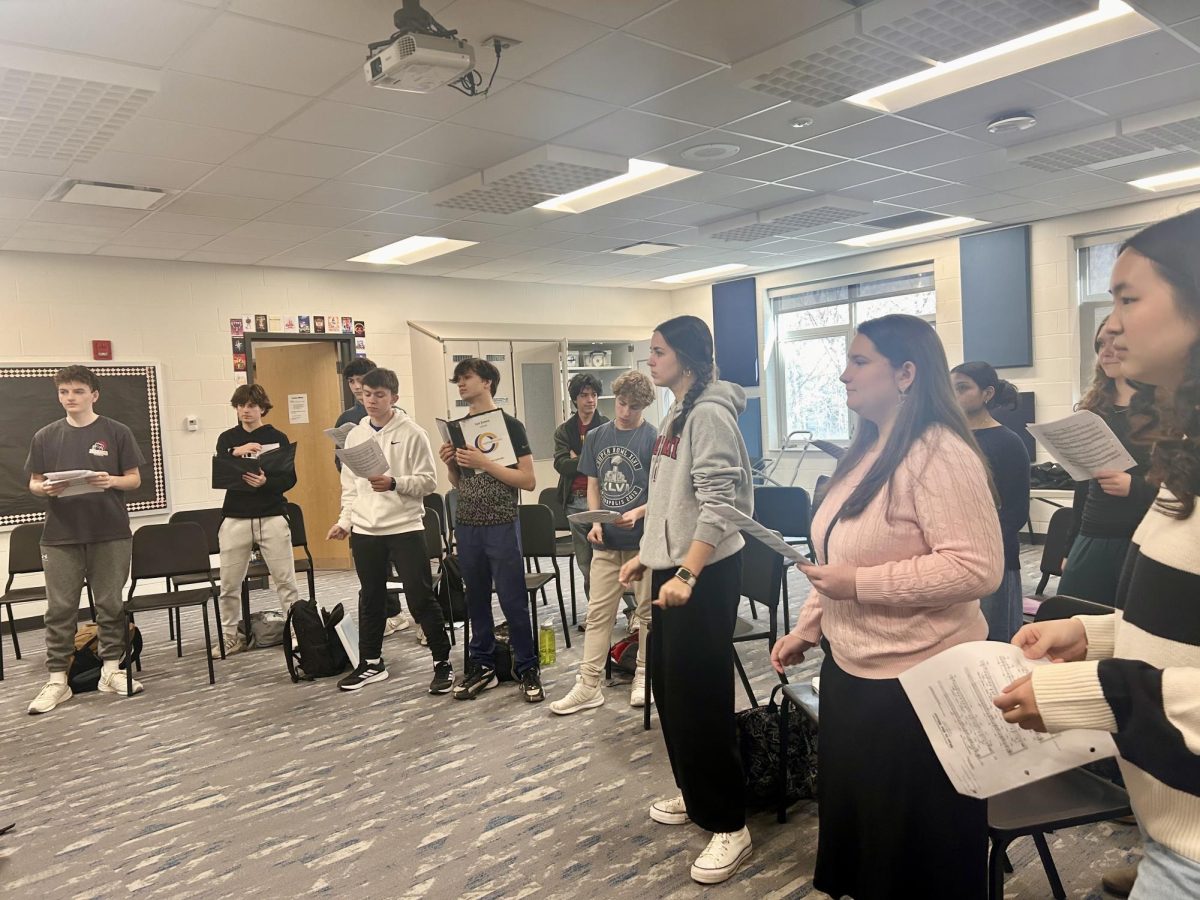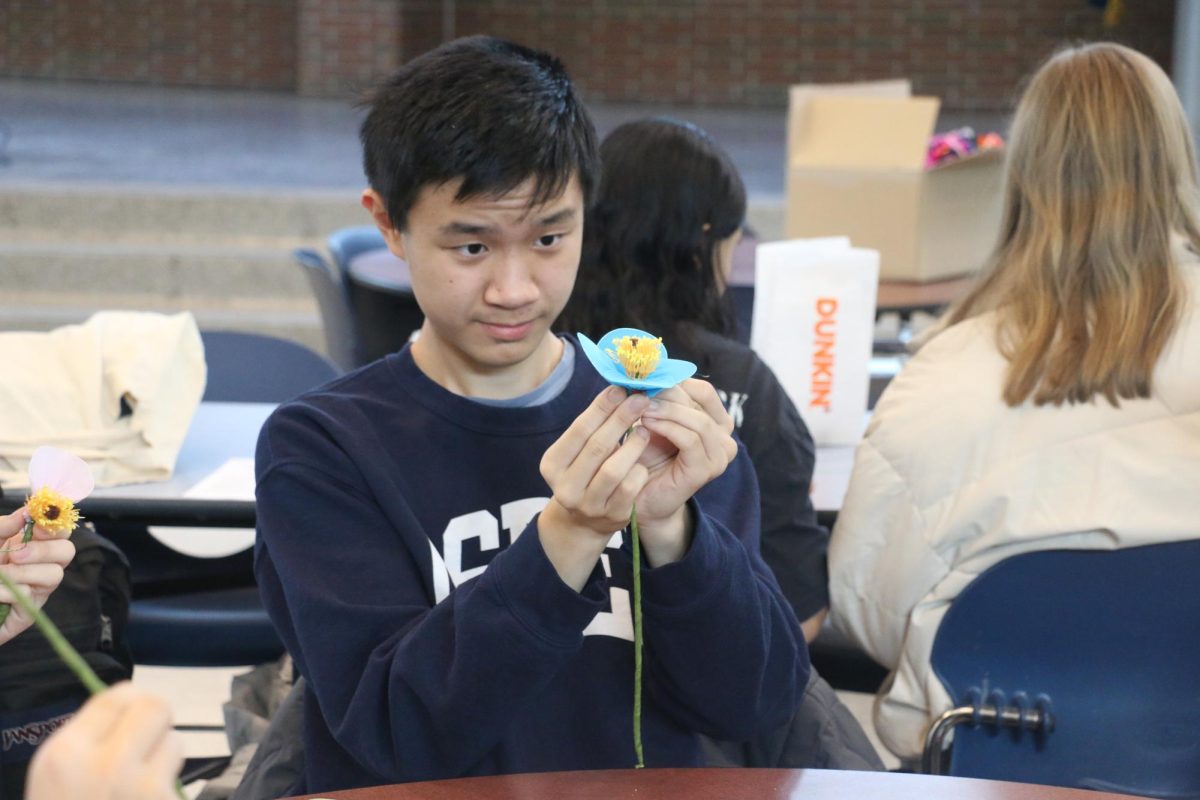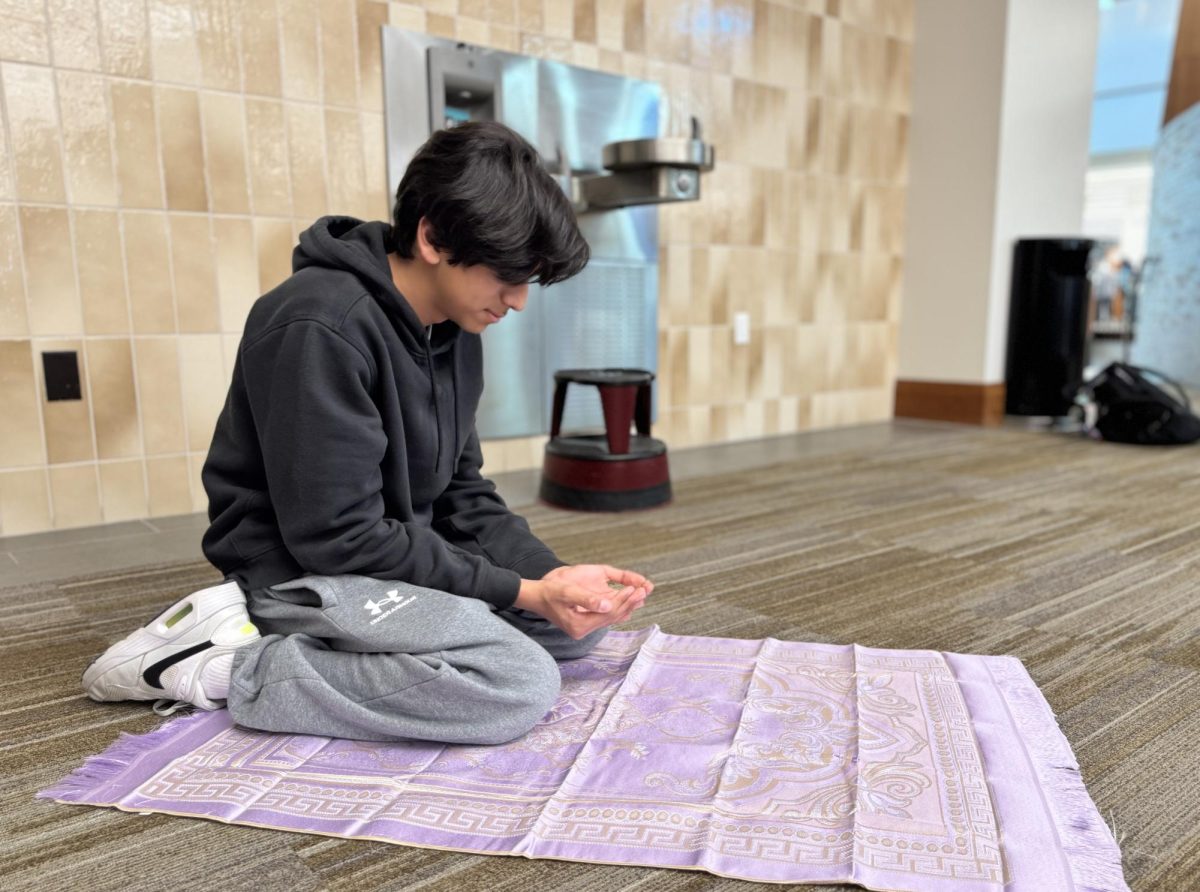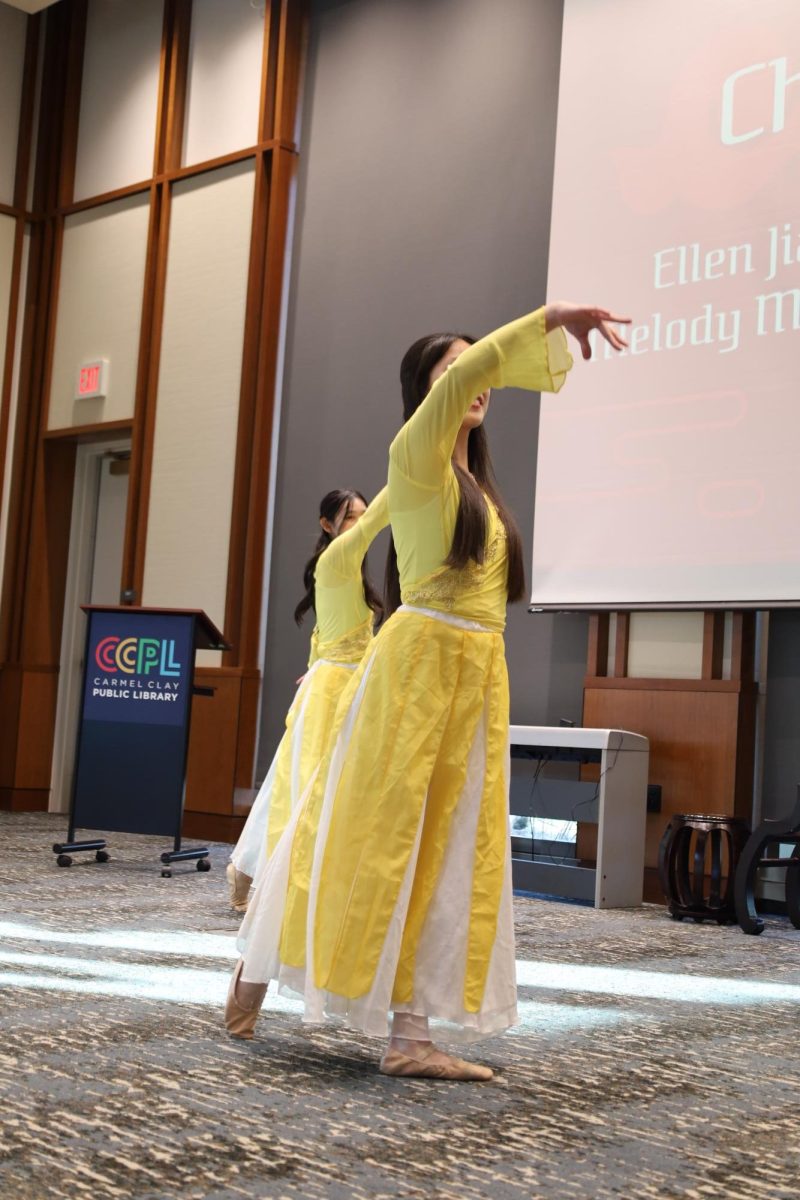By Ellie Seta
eseta@hilite.org

With lab notebook in hand, senior Zenas Shi heads to his chemistry class. However, instead of walking into a typical science classroom, he walks into an empty lab. Shi is among a select group of seniors who are a part of the independent study chemistry class. Shi’s class has no tests, no daily homework or even a teacher present in class. But more importantly, this class has no curriculum. The only expectation is that every student must present an in-depth research project at the end of the year. This class may seem like an ideal course for most high school students due to its lack of structure, but Shi is quick to point out that this course is one of the most rigorous classes he has taken.
“I learn a lot better when I am challenged,” Shi said. “And through this class I have learned so much more than I would have in a typical class.”
Although independent study classes like this are very different from the typical high school course, the analytical aspects surrounding the class are something that students should prepare to see more of in the coming years. According to the Indiana Department of Education, on Aug. 3, 2010, Indiana became one of 39 states to adopt the Common Core National Academic Standards, a new national academic curriculum which is hoped to be adopted by all 50 states. This new curriculum is part of a new national initiative to better prepare American students for college and careers through more rigorous methods of learning. This new method of learning is one that Shi has already found to be very effective, especially in reaching his maximum learning potential.
Dr. Linda Thompson, director of curriculum for Carmel Clay Schools, said the new Common Core National Curriculum is much more rigorous than the previous state curriculum. She said what sets this new curriculum apart from the old state curriculum is that instead of focusing on what to learn the new curriculum focuses on how to learn.
“(The Common Core) curriculum is based on critical thinking which enhances a student’s opportunity for academic exploration,” Thompson said. She said it is also focused on analysis, extended meaning and critique. In an effort to increase understanding in all academic areas, the Common Core also integrates literature into science, social studies and technical education.
Similar to independent study courses, the Common Core curriculum prepares students to analyze and interpret information in a much more analytical way. Thompson recognizes the importance of teaching students how to think and analyze information instead of just reading and memorizing information from text books. Thompson said she hopes to implement this idea of exploratory and analytical learning into all academic areas of the Carmel Clay Schools curriculum.
However this concept of analytical thinking is not new to the AVID program, which specializes in teaching students study skills and preparing students for college. Jennifer Williams, AVID coordinator and English teacher said it is this element of analytical thinking which has made the AVID program successful with a one hundred percent college acceptance rate for the past three years.
“For our kids, what is important is them learning how to study and also developing discipline for their schoolwork,” Williams said. “Learning how to study requires higher level thinking.”
Similar to the AVID program, the new curriculum will focus on analytical thinking but also implement more exploratory teaching styles. It is this element of intellectual exploration that Shi has found to be the most beneficial aspect to his chemistry class.
“Since the class requirements are so broad you have a lot more freedom in what you choose to learn about,” Shi said. “It is great because you get to decide and discover what you like and what you are passionate about.”
Thompson said she believes that this new curriculum will be able to satisfy student’s desire for educational exploration. She said that, although the new Common Core curriculum is more challenging, she believes students will be able to handle the increased rigor and will benefit from it in the long run. This is especially the case in preparation for external tests like AP and IB exams. It is Thompson’s hope that all high school students are able to take at least one AP class, or at least have the capability to succeed in an AP course. She said that taking AP classes is the key to succeeding in college.
“It is our hope that no matter what direction (students) move they will be prepared,” Thompson said.
Overall, Shi said he thinks he will be very well prepared for college level chemistry classes because of his independent research this year. “I really think that I will be much more prepared than students who have only learned chemistry in a classroom setting,” Shi said. “The hands on training I have had this year has really been irreplaceable.”































![AI in films like "The Brutalist" is convenient, but shouldn’t take priority [opinion]](https://hilite.org/wp-content/uploads/2025/02/catherine-cover-1200x471.jpg)













































![Review: “The Immortal Soul Salvage Yard:” A criminally underrated poetry collection [MUSE]](https://hilite.org/wp-content/uploads/2025/03/71cju6TvqmL._AC_UF10001000_QL80_.jpg)
![Review: "Dog Man" is Unapologetically Chaotic [MUSE]](https://hilite.org/wp-content/uploads/2025/03/dogman-1200x700.jpg)
![Review: "Ne Zha 2": The WeChat family reunion I didn’t know I needed [MUSE]](https://hilite.org/wp-content/uploads/2025/03/unnamed-4.png)
![Review in Print: Maripaz Villar brings a delightfully unique style to the world of WEBTOON [MUSE]](https://hilite.org/wp-content/uploads/2023/12/maripazcover-1200x960.jpg)
![Review: “The Sword of Kaigen” is a masterpiece [MUSE]](https://hilite.org/wp-content/uploads/2023/11/Screenshot-2023-11-26-201051.png)
![Review: Gateron Oil Kings, great linear switches, okay price [MUSE]](https://hilite.org/wp-content/uploads/2023/11/Screenshot-2023-11-26-200553.png)
![Review: “A Haunting in Venice” is a significant improvement from other Agatha Christie adaptations [MUSE]](https://hilite.org/wp-content/uploads/2023/11/e7ee2938a6d422669771bce6d8088521.jpg)
![Review: A Thanksgiving story from elementary school, still just as interesting [MUSE]](https://hilite.org/wp-content/uploads/2023/11/Screenshot-2023-11-26-195514-987x1200.png)
![Review: "When I Fly Towards You", cute, uplifting youth drama [MUSE]](https://hilite.org/wp-content/uploads/2023/09/When-I-Fly-Towards-You-Chinese-drama.png)
![Postcards from Muse: Hawaii Travel Diary [MUSE]](https://hilite.org/wp-content/uploads/2023/09/My-project-1-1200x1200.jpg)
![Review: "Ladybug & Cat Noir: The Movie," departure from original show [MUSE]](https://hilite.org/wp-content/uploads/2023/09/Ladybug__Cat_Noir_-_The_Movie_poster.jpg)
![Review in Print: "Hidden Love" is the cute, uplifting drama everyone needs [MUSE]](https://hilite.org/wp-content/uploads/2023/09/hiddenlovecover-e1693597208225-1030x1200.png)
![Review in Print: "Heartstopper" is the heartwarming queer romance we all need [MUSE]](https://hilite.org/wp-content/uploads/2023/08/museheartstoppercover-1200x654.png)

